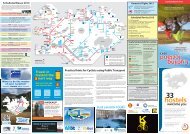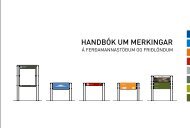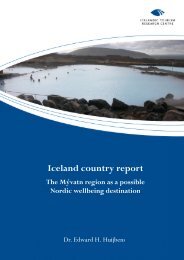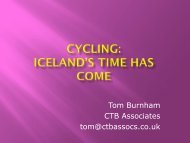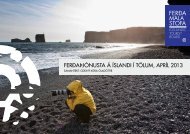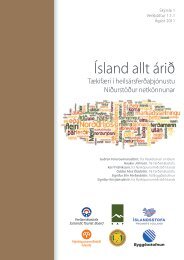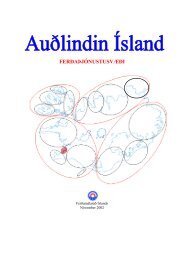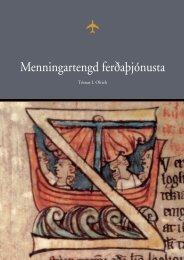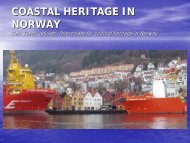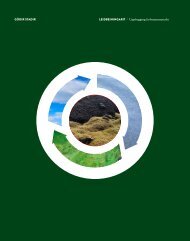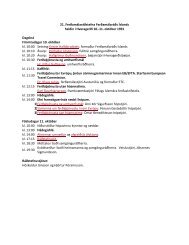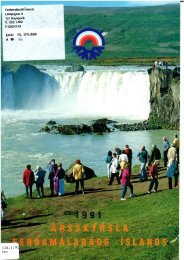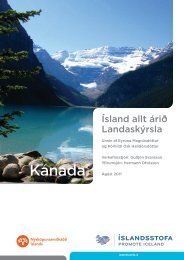Untitled
Untitled
Untitled
You also want an ePaper? Increase the reach of your titles
YUMPU automatically turns print PDFs into web optimized ePapers that Google loves.
Summing up<br />
It has often been lamented that “there is a limited theoretical development<br />
in tourism studies” (Holden 2005, p. 5). Although it can be debated<br />
whether or not that is the case, we have identified “tourism as a<br />
geographical phenomenon” as something that tourism theory and tourism<br />
research may well need to consider further.<br />
Boiled down to its geographical essentials tourism entails<br />
topologically complex geographies that takes us far beyond, say, a<br />
descriptive geography of tourism accompanied by tedious mapping<br />
exercises of tourist destinations and travel routes. Geography itself, if there<br />
were to be such a thing, ensures that there is no safe haven for tourism<br />
theory where it could be contemplated at face value. Tourism theory is<br />
always in symbiosis with its earthly conditions of production in specific<br />
places, here, there, and most importantly in-between. These geographical<br />
conditions, as we have tried to illustrate, hold for the tourist and the<br />
tourism researcher alike.<br />
Of crucial importance for the present and future development of<br />
tourism theory and research is the observation that “[t]ourism studies is<br />
coming of age at a time when dramatic change is afoot in the broader<br />
domain of social research philosophy” (Belhassen and Caton 2009, p.<br />
335). It seems, however, that tourism studies are still not afoot with this<br />
“dramatic change” that Belhassen and Caton refer to. When scanning the<br />
tourism literature one gets the impression that much is still written and<br />
done in the frame of old distinctions that all since long have been<br />
problematized in social research philosophy: interpretative–explanatory,<br />
positivism–hermeneutics, qualitative–quantitative, subjective–objective,<br />
theoretical– empirical.<br />
In a similar way as the tourist is stitching together and ordering his<br />
or her behaviours, perceptions and cognitions, the tourism researcher is<br />
also involved in travels from there to here in the construction of scientific<br />
knowledge. Traditional research methodologies were developed when<br />
knowledge travelled much more slowly. Today knowledge is more readily<br />
accessible, circulates more widely and can be quickly transported. What<br />
once was produced and belonged to only learned scholars can be disputed<br />
or corrected on the spot by an audience of Googling students. The Internet,<br />
with its too numerous to mention websites, is now also the place many<br />
tourism researchers and potential tourists will visit during their process of<br />
deciding on a destination or a research topic. They are then, with or<br />
without Google as a gateway, engaging with the contemporary vast pool of<br />
easily accessible tourist imaginationings. To decide and select from this<br />
56



